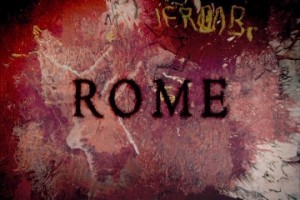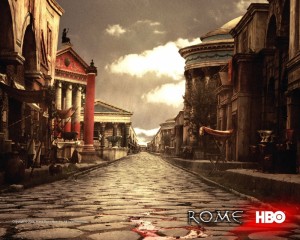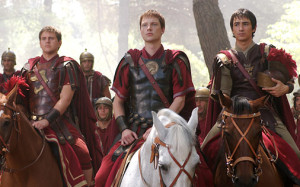The first five books of the Old Testament are known to the Jewish people as The Torah. The Church refers to them as the “Books of Moses. Surprisingly, perhaps, few Christians today study them in the depth they deserve. This is a pity, for they are the very foundation of our Faith.
It is hoped that this year’s Lenten Study, “Exploring The Torah”, will go some way towards rectifying this. So why not join us to learn what the books have to tell us about who we are, where we come from, and how we should live.
We shall investigate claims by fashionable theologians that The Torah should be largely ignored because it promulgates racism, slavery, revenge killing, capital punishment, and the subjugation and exploitation of women. And we shall explore what archaeology has to tell us about the books and the events they record.
The studies—by Fr. Guy Hawtin and Fr. Kerouac—will offer plenty of time for discussion. Each study will be self-contained, so if you miss one or two—or even more, for that matter—you’ll not be left dangling.
Why not join us at 6:30 PM after Evening Prayer on the five Wednesday evenings in Lent—February 25th. and March 4th, 11th, 18th and 25th—for body and soul. We’re offering beverages, hearty soup, and the best bread in Baltimore, not to mention plenty of food for thought. If you think you need more, bring a sandwich.
The Rector writes:
If you wonder why The Torah is so important, imagine what the world would be like without the extraordinary influence it—through the Jewish and Christian Faiths—has exerted on world affairs and the way in which it has molded our society and our values.
 In fact, to get an idea of what the world would be like without it, you could do worse than to pick up DVDs of the HBO Television series Rome. It is an historical drama set at the time of the demise of the Roman Republic, the rise to power of Julius Caesar, and the imposition of the imperial system.
In fact, to get an idea of what the world would be like without it, you could do worse than to pick up DVDs of the HBO Television series Rome. It is an historical drama set at the time of the demise of the Roman Republic, the rise to power of Julius Caesar, and the imposition of the imperial system.
I received the first two seasons of DVDs as a birthday gift from my daughter Elizabeth. She hadn’t seen the series herself, and she was mortified to discover it contained graphic violence and—as in many British-made TV productions these days—explicit sex.
But that, I told her, is exactly what Rome was like at the time the old Roman Republic was stumbling along the path to blood soaked oblivion. Rome was, indeed, an exceedingly violent and sinful city at that time.
Time–hallowed Roman morality had broken down. Husbands betrayed wives, wives husbands, parents children, and children parents—not only sexually, but politically, as well. The city’s politicians no longer tolerated principled opposition, but rather recruited street gangs to slaughter their rivals.
Caesar didn’t actually overthrow republican government. He simply took advantage of the chaos to assume power. Two brutal civil wars later, his nephew and heir Octavian (deified as Augustus) laid the foundations of the imperial system.
 Some might describe Rome as The Sopranos in togas, but this does the series a disservice. Its great virtue—admittedly an odd way of describing the graphic portrayal of sex and violence—is that it presents an historically illiterate generation with a lesson on the fate of societies that shuck off the morality that underpins them.
Some might describe Rome as The Sopranos in togas, but this does the series a disservice. Its great virtue—admittedly an odd way of describing the graphic portrayal of sex and violence—is that it presents an historically illiterate generation with a lesson on the fate of societies that shuck off the morality that underpins them.
A remarkable thing about the Romans is how much like us they were. They had similar governmental and legal systems—a senate, an assembly, and courts of law. They maintained a highly trained and well-equipped professional army.
They had fire departments, health clinics, banks, and insurance companies. They relaxed in bars, restaurants, health spas, and nightclubs. They lived in apartment blocks, town houses, and luxurious suburban villas—all piped with running water.
They vacationed by the sea, went to the theater, adored chariot racing (their answer to NASCAR), and sports of all kind—the more strenuous and violent, the better.
Another remarkable thing about the Romans is how very different we are from them. And the difference arises from the fact that Rome had not been exposed to Christianity. Rome was a society in which pity, mercy, and love towards one’s fellow men were not regarded as virtues, but merely options—and not widely admired options at that.
Slavery reached into all areas of Roman life. Even the poorest of homes had one. They were the Romans’ household appliances and industrial machines. At the same time, a large proportion of the city’s professionals—trusted political advisers, administrators, physicians and the like—were slaves. Yet slaves had no rights. They could be killed at will.
 The ancient Roman virtues were those of self-discipline—frugality, loyalty, civic pride, courage in battle, and stoicism in adversity. They were instilled in every citizen from childhood. But when good times came, prosperity edged aside frugality, loyalty, and civic pride, as people strove for their own individual advancement.
The ancient Roman virtues were those of self-discipline—frugality, loyalty, civic pride, courage in battle, and stoicism in adversity. They were instilled in every citizen from childhood. But when good times came, prosperity edged aside frugality, loyalty, and civic pride, as people strove for their own individual advancement.
Christian virtues have proved immeasurably more powerful than those of ancient Rome. Over the past two millennia, they have transformed the West—enshrining love for humanity as the over-arching virtue and ushering in an era of democracy.
The vital lesson of The Torah, set in the context of HBO’s Rome series, is that America abandons Christianity, and the virtues it imparts, at its peril. GPH✠


